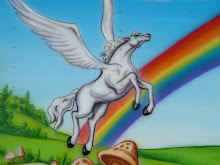Film deals with these questions similarly to literature; the only difference is that you’re not reading about all these issues, you are watching all these issues, although people usually see things differently after they watch a movie over reading. As everyone always says, “seeing is believing.” For example in the novel “Perfume” there was a movie made for it. The likely story is the book was a lot better than the movie, and the movie may be slightest different, but none the less the ideas on “good” and “evil” were exactly the same and probably didn’t change in the movie. It would be portrayed similarly if not the same.
In movies just like literature; what constitutes a “good” person and an “evil” person is portrayed as completely universal. The movie directors probably try their best to not make it subjective, they want to clearly make their “evil” characters “evil” and they want to clearly make their “good” characters “good.” Although movie writers and directors cannot change the opinion of the movie watchers, they do try their best to influence their thoughts and persuade them to see these characters the way that they intend for them to be seen. In a superhero movie it is clear who the “good” characters are and clear who the “Evil” ones are. The good characters are usually the ones that are trying to put a stop to the “evil” characters and the “evil” characters are trying to wreak havoc and terror in the world, city or where ever it may be.
In most movies there are clearly defined roles, but in some it isn’t so easy to differentiate between the “good” characters and the “evil” ones. In the movie “Hancock” the protagonist who is hancock is portrayed as somebody who may do “good” but his intentions are not always pure and just, and he doesn’t have the city and the people’s interest at heart. Hancock may do “good” things but he is a homeless bum who is always drunk, swears non stop, does unethical things, and creates such a mess when “trying” to save the day. For example in one of the scenes there was this car that was stuck in traffic in the train tracks, and a train was coming. Of course here comes hancock out of nowhere and the smartest thing to do was to just take the car and fly up, but no Hancock has to smash the train and throw the car on top of another one. Of course later on in the film he learns to be a true hero and is portrayed as a full “good” character and doesn’t have a hint of “evil.”
Overall no matter how you look at it, film is quite similar to literature and how they deal with these questions is in fact similar.
Subscribe to:
Post Comments (Atom)

No comments:
Post a Comment